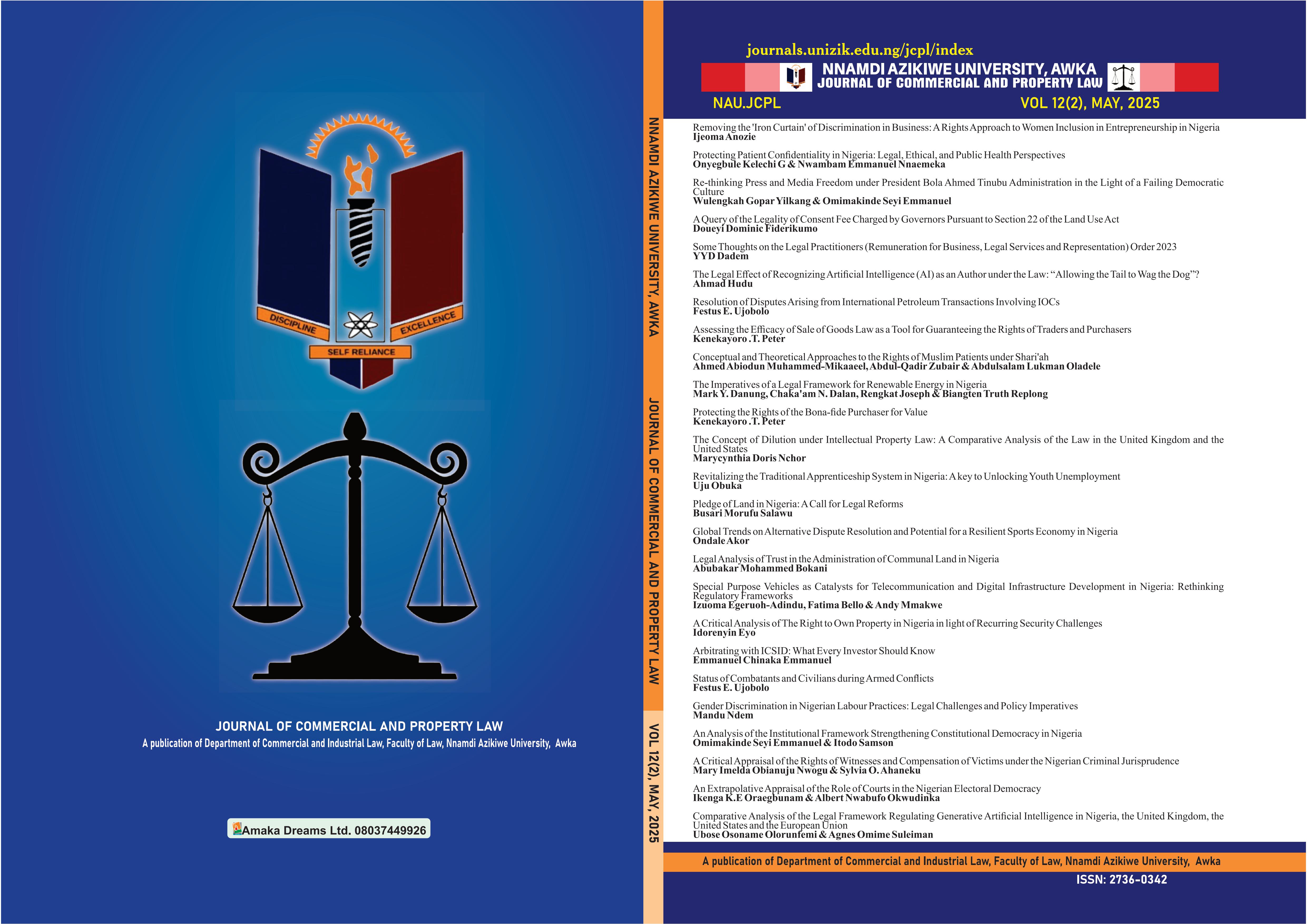COMPARATIVE ANALYSIS OF THE LEGAL FRAMEWORK REGULATING GENERATIVE ARTIFICIAL INTELLIGENCE IN NIGERIA, THE UNITED KINGDOM, THE UNITED STATES AND THE EUROPEAN UNION
Keywords:
Generative artificial, legal frameworks, regulation, comparative analysis, data protection, LiabilityAbstract
This study provides a comparison of the legal frameworks regulating artificial intelligence (AI) in
Nigeria, the United Kingdom (UK), the United States (US), and the European Union (EU). As AI
technology rapidly advances, international legal systems face unique challenges in addressing
issues such as intellectual property rights, data protection, accountability, and the administration
of justice. The analysis shows significant differences in practice from these policies. The EU stands
out with its effective and successful regulatory systems, such as the Artificial Intelligence Act, which
aims to harmonize AI regulations across member states. In contrast, the United States follows a
work and tradition approach based on existing laws supported by specialized agency guidelines.
The United Kingdom has adopted a strategic and balanced approach to innovation and governance
through propulsion while exploring broader reforms. Nigeria is in the early stages of developing
AI specific polices, relying heavily on laws and regulations and attempting to bridge the gap. This
study compares these laws to identify strengths, weaknesses and best practices, providing insights
into the development of wisdom-generating respect. It concludes with recommendations for
reforming the regulatory process to encourage innovation, increase accountability and protect the
public interest.

